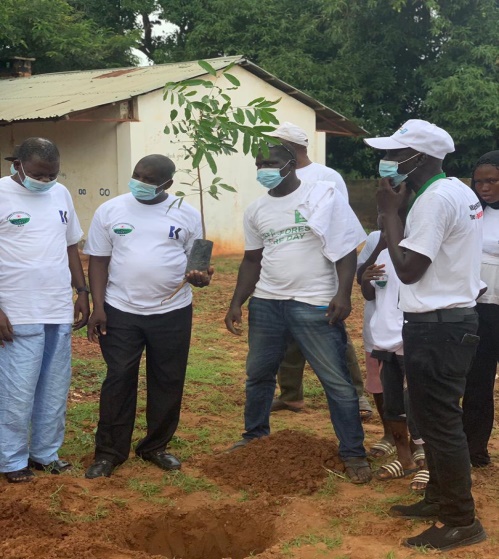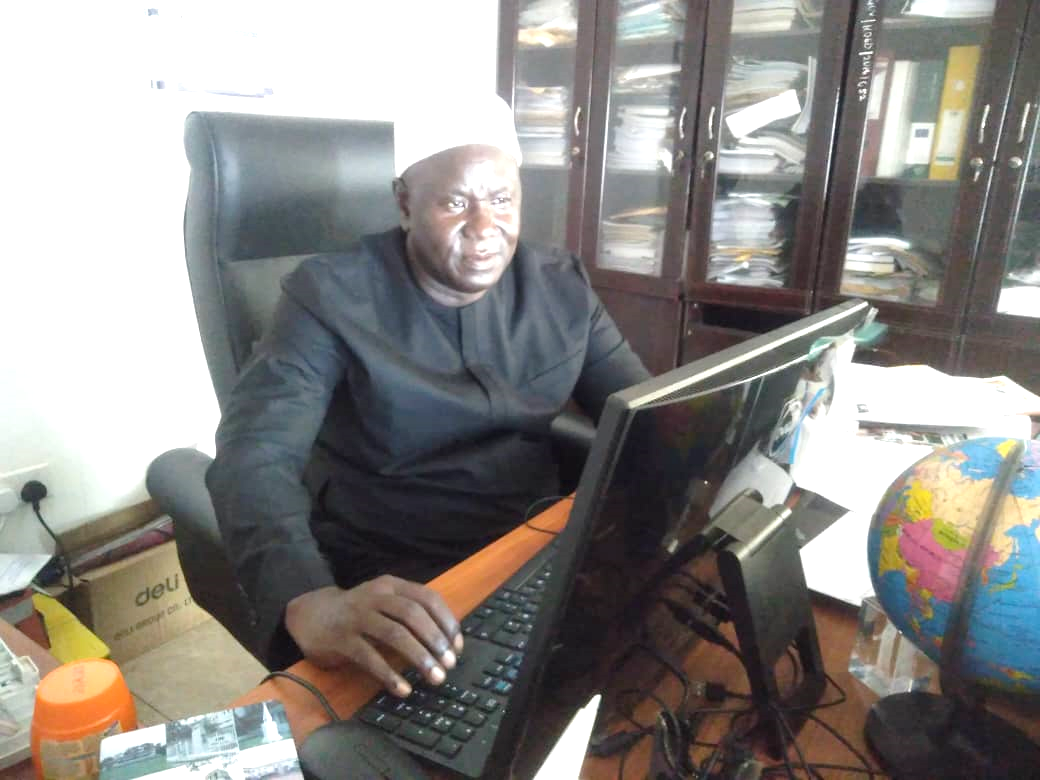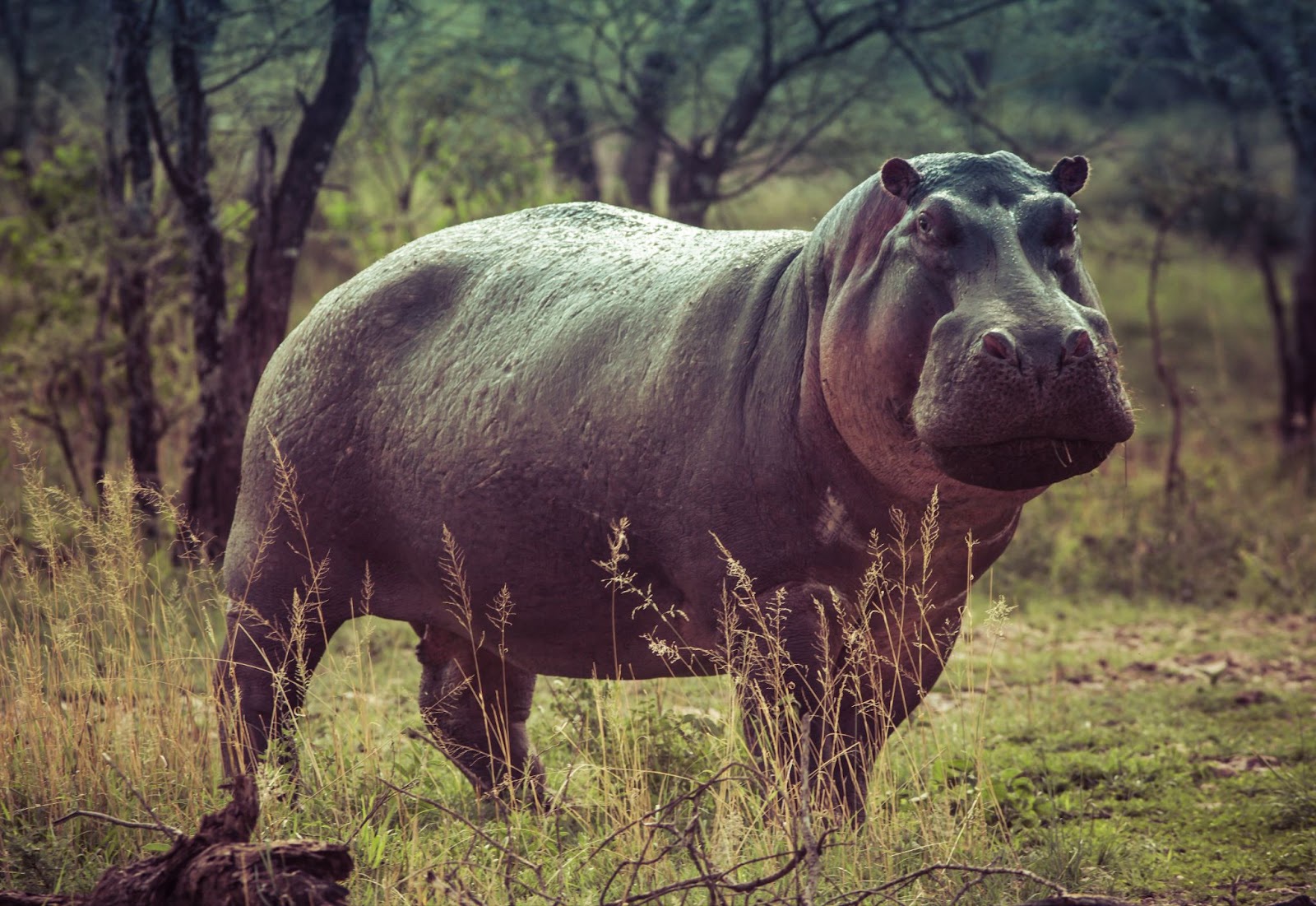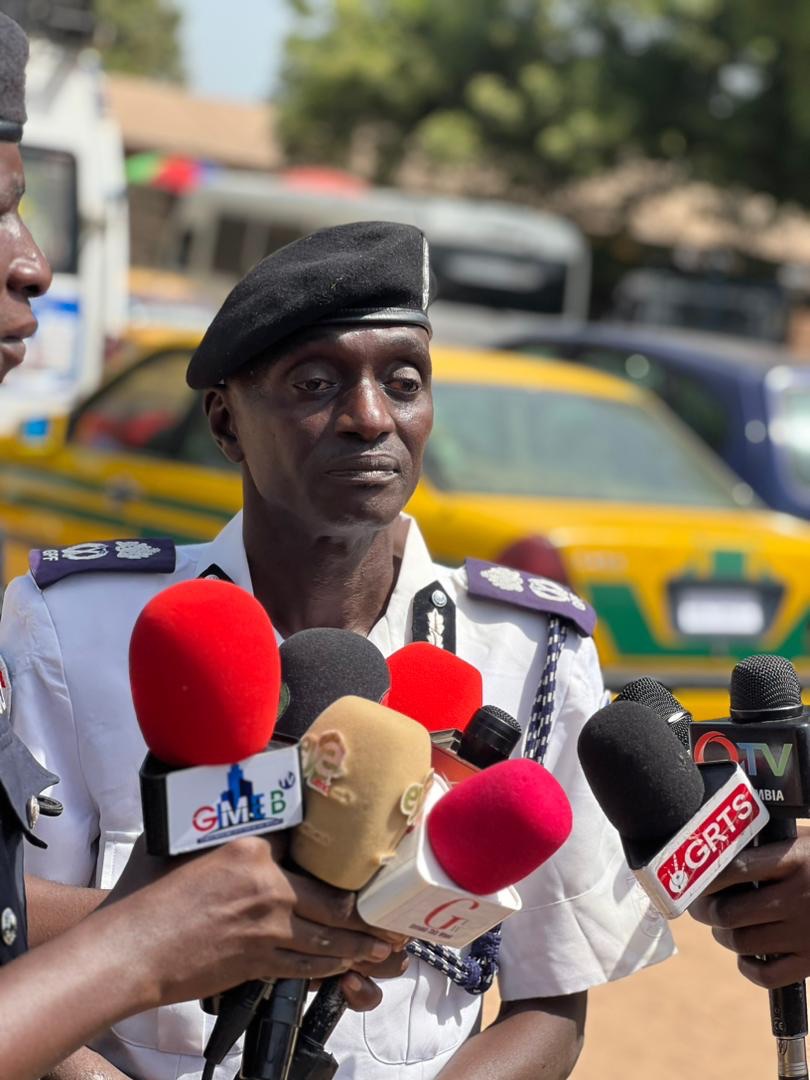By: Sheikh Alkinky Sanyang
The Governor of North bank Region (NBR) has reiterated his government`s call for the restoration of the disappearing vegetation cover of the region through the planting of indigenous and utility trees as a token of heritage for the coming generation. With the reality of the fast approaching of the Sahara desert and the disappearing of the remaining vegetation cover, he said restoration of the cover become a compelling demand for an integrated approach.
Governor Lamin Saidyknan make this call during a school based tree growing exercise at Kerewan Basic Cycle School, NBR, during the commemoration of this year`s World Environment Day.

Governor Saidykhan about to plant his Mango tree
The theme for this year is ecosystem restoration, with a special focus on creating a good relationship with nature. In the next 10 years, the United Nations with the support of countries, partners, and people want to focus on preventing and reversing the loss of degraded natural ecosystems to fight the impacts of climate change.
He disclosed that restoration of damaged ecosystems is receiving increasing attention worldwide and the Gambia is no exception. “Restoration will become increasingly important because our planet will sustain an increasingly heavy human footprint as human populations continue to increase”. Furthermore, he said restoration efforts can improve desirable ecological functioning, even when restoration to a historic standard is not feasible with current practice.
The Governor planted the first seedling, followed by the Regional Education Director marking the beginning of the massive planting party. All other institutions present were given that opportunity to plant a tree on behalf of their institutional heads officially marking the beginning of the massive growing exercise with technical support from staffers of the regional Forestry officers.
The Governor urged the school administration to jealously safe guard the newly planted trees for the benefits of the entire region and the country at large and gave assurance to support the school to improve the region’s tree population. Saidykhan went further to informed the pupils that government cannot do it all and theirs is an example of complementing government`s effort, while urging other schools and communities to emulate.
The Governor further called on the community to take ownership of their own development and bear in mind that PEACE have NO substitution on Earth. He finally declared the session open and wishes them a very fruitful ceremony and many more in advance in peace, progress and prosperity.
Speaking earlier, the Regional Education Director Mamat Cham said trees give off oxygen that we need to breathe, they reduce the amount of storm water runoff, which reduces erosion and pollution in our waterways and may reduce the effects of flooding. Many species of wildlife, Cham said depends on trees for habitat while trees also provide food, protection, and homes for many birds and mammals.

Pupils planting their own trees
Director Cham further posited that this tree growing program is a learning opportunity to get pupils involved in the environment and conservation of our natural resources, as recent scientific studies suggested that students are better able to concentrate, complete tasks, and follow directions after playing in natural settings.
Adding on, he lamented that these School Tree growing exercise connect students to the benefits of trees and foster environmental stewardship, and as he put it, tree planting is a great way to increase student interest in their local environment and achieve academic goals. Each school tree growing exercise provides educators with the opportunity to inspire school administrators, and students to affect positive change at their schools and, in turn, their communities.
When students plant trees, they can see for themselves the structure of trees, learn what they need and how they grow, while teachers can use the planting process to discuss the benefits trees provide. As trees mature, the trees can be a continuing, personalized way of relating what they’ve learned in books to visible, living examples.
In his speech, Lamin S. Jawara, one of the senior school cluster monitors revealed that the main aim of these activities is to inculcate good practices in environmental management into young school going children and foster more collaboration and corporation amongst schools and their supporting communities. In this maiden edition of school based tree growing, over three hundred seedlings were transplanted within Kerewan basic cycle and Kerewan Senior Secondary schools and both school administrations and the regional education office promised for the total protection and wellbeing of the newly transplanted seedlings.
NEA`s Program Officer for Environmental Education & Communication, Sheikh Alkinky Sanyang advised that all the transplanted seedlings must be protected from both human and animal intrusion, and further called for a higher survival rate of the newly planted seedlings. He gave a marathon sensitization speech on the importance of tree planting and its essence to human life and the environment. He stressed that felling of trees for charcoal production, forest fires and other unsustainable utilization of forest resources greatly contributed to the effects of climatic change which affects human livelihood, the eco system and the environment in general.
He warned that “No tree, No Life”, signaling that the felling of a single big tree always results to the death of many other smaller ones as it falls on them. Trees trap carbon dioxide released from human and carbon monoxide by vehicles serving as a carbon sink, he pointed out. He finally warned the community that the ban on plastic bags still holds and soon there will be a massive campaign and enforcement and those found wanting will be dealt accordingly. He informed the gathering that plastic cause lot of harm to human health, marine lives, environment, agriculture, animals, etc. This is as a result of the two toxic chemicals (dioxin and furan) that are used in the production of plastic bags and these two chemical are among the twelve chemical called Persistent Organic Pollutants (POPs) which were banned globally due to their impact on human health and the environment.
He concluded by informing the gathering that the essence of this annual tree growing is to mitigate climate change by increasing carbon print contribution while this School Tree Growing activity helps connect students to the benefits of trees and foster environmental stewardship. Sanyang thanked the Governor and Education Director for their active participation, and forestry for their technical support.
It could be recalled that the NEA has decentralized its program activities to all regions and its schools environment outreach program is no exception. To this effect, the agency will be collaborating with fifteen (15) schools in each region.




